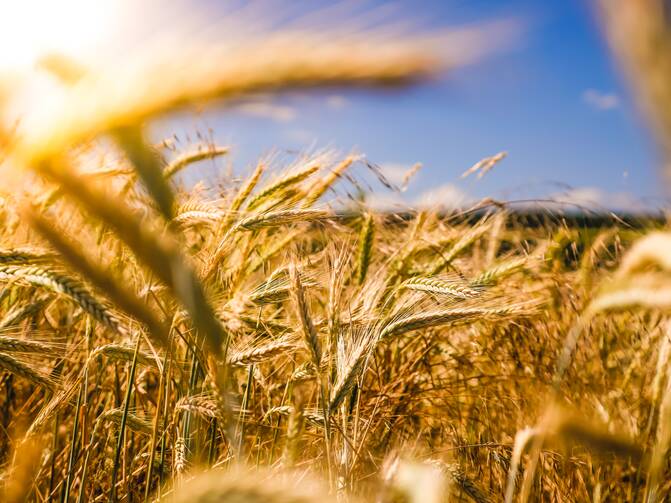A Reflection for the Wednesday of the First Week of Advent
Find the readings here.
The disciples said to him,
“Where could we ever get enough bread in this deserted place
to satisfy such a crowd?”
Jesus said to them, “How many loaves do you have?”
“Seven,” they replied, “and a few fish.”
He ordered the crowd to sit down on the ground.
Then he took the seven loaves and the fish,
gave thanks, broke the loaves,
and gave them to the disciples, who in turn gave them to the crowds.
They all ate and were satisfied.
They picked up the fragments left over—seven baskets full. (Mt. 15:33-37)
Managing scarcity and abundance has been a special burden of humanity since the dawn of civilization. It remains so, but in a world of manifest abundance, how do we go on accepting scarcity as a “natural” part of the human condition?
Today’s Gospel reading is a miracle tale, beginning with cures of “the lame, the blind, the deformed, the mute, and many others.” The final miracle is the feeding of a vast, hungry mass of people. But that story works just as well as a parable for our times as humankind confronts crises of scarcity amid abundance around the world.
This miracle of the seven loaves and seven fishes—seven is a popular number in Scripture, like 40 or three—reminds me of the various yarns about “stone soup” told to children over centuries. Whether your protagonists are two wily Jesuits, Irish travelers or three hungry soldiers on the way home from the Napoleonic wars, the story is more or less the same. Smart-alecks trick suspicious and parsimonious peasants into joining what little they had together in a “stone soup” that transforms into a feast and a celebration shared among the entire community.
The same probably happened when Jesus and his disciples began freely sharing what they had with all, cajoling some and perhaps shaming others into sharing the food and resources they had been holding back for their own use. In the end, there is enough for all and then some because God’s great gift of creation has been shared with us in abundance.
Maybe the G7 (there’s that number again) will take the lead this year, sharing freely for all, with all. What abundance might then be discovered!
In today’s first reading, we hear that the Lord “will provide for all peoples a feast of rich food and choice wines” and that the Lord “will destroy the veil that veils all peoples, the web that is woven over all nations.”
We read of famine, drought and malnutrition around the world, and it fills us with sorrow and regret. It should also fill us with a little shame and remorse. We all know that there is sustenance and then some in today’s marketplace, plenty to prevent hunger and suffering beyond “the web” of borders that fraudulently separate us.
We know that tons of resources and food are discarded each day by a market unable to deliver the goods of creation to the hungry and deprived. Modes of exchange devised by humankind in a fallen economy create scarcity and throw up obstacles to merciful sharing. But these obstacles are not insurmountable, and contemporary scarcity is not a shame that we have no choice but to accept because of the “logic” of the market.
In Dubai this week, the world’s leaders are meeting to work out a strategy for dealing with global warming. In a sense, they will also contend with problems of abundance and scarcity. How will the obligations to contain global warming be divvied up among world powers and the nations of the developing world? In the end, will all benefit from the abundance of creation, or will some be asked to give even more out of their scarcity?
Maybe the G7 (there’s that number again) will take the lead this year, sharing freely for all, with all. What abundance might then be discovered!








